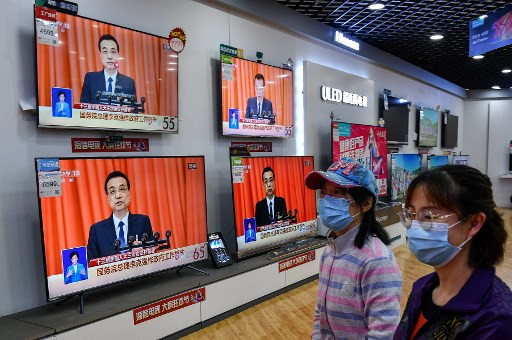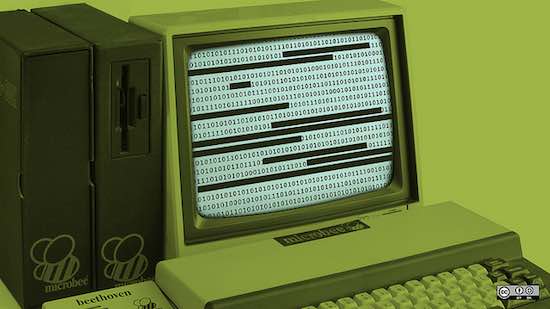






India's Ministry of Information and Broadcasting has proposed a new draft broadcast bill that aims to replace the existing regulations for the broadcasting sector. The bill, which has raised concerns about censorship, press suppression, and lack of clarity in regulation, introduces a system of self-regulation through content evaluation committees, giving the government significant control over these bodies. The bill extends cable television regulations to online entities, which experts argue is problematic as the internet provides greater availability of information and choice. The inclusion of digital news published by individuals under the regulatory ambit raises concerns for online free speech and journalistic expression. Failure to comply with the provisions of the bill may result in penalties ranging from censorship of content to fines and registration cancellation. The bill also allows for the prohibition of broadcasting in certain regions, requiring over-the-top platforms to track user locations. Experts suggest that the regulation of the broadcasting domain should be independent of executive control and inspired by principles of consensual content viewing. They also emphasize the need to address market concentration and potential monopolies in media and broadcasting.
The Editors Guild of India (EGI) has called out the draft Broadcasting Services Regulation Bill, 2023 for being 'vague and excessive'. In its submission to the Ministry of Information and Broadcasting (MIB), EGI expressed concerns that the bill would be 'adverse to the spirit of freedom of speech and freedom of press guaranteed by the constitution.' EGI highlights concerns about the lack of definitions for 'news and current affairs' and 'systematic business, profession or commercial activity', making the provisions regulating news services vague and worrisome. The bill also does not clarify whether a threshold of subscribers/viewers will be prescribed for who qualifies as a broadcaster [15068100].
The National Alliance of Journalists (NAJ), the Delhi Union of Journalists (DUJ), and the Andhra Pradesh Working Journalists Federation (APWJF) have also expressed reservations against the proposed Broadcasting Services (Regulation) Bill 2023. These journalist associations argue that the bill is a step towards expanding censorship and increasing government control over various media platforms. They believe that the bill blurs the distinction between journalism and content creation and includes provisions that could muffle independent voices. The associations call for the bill to be rolled back and suggest the formation of a common body like a Media Commission of India to address self-regulation. They also criticize the bill for being silent on media ownership concentration. The bill comes after the Telecom Act of 2023, the Digital Personal Data Protection Act, 2023, and the IT Amendment Rules, 2023 [cdfee184].
Under the present regime, censorship muscle is being directed at print, television, and digital mediums through various acts and rules. The Broadcasting Services (Regulation) Bill, 2023, IT Rules of 2021 and 2023 amendments to Press and Registration of Periodicals Act, 2023 are all part of the censorship efforts. The government is in a hurry to pass these bills, despite concerns raised by experts and professionals. The Editors Guild of India has expressed deep concern about the new Press and Registration of Periodicals Act, which widens the powers of the State and imposes restrictions on citizens. The Cable Act and the Cable Television Networks (Amendment) Rules in 2021 have also created regulations for television content. The IT Rules amendment of 2021 has faced challenges in various High Courts. The rules have been criticized for going beyond the powers delegated under the Act, overbroad grounds for restricting online content, lack of procedural safeguards, and privacy concerns [14d8033e].
This proposed bill is part of the Indian government's efforts to regulate streaming platforms and online content. It aims to bring platforms like Netflix, Disney, and Amazon under the purview of the Ministry of Information and Broadcasting. The bill introduces Content Evaluation Committees (CECs) to evaluate and certify the content produced by these platforms. However, critics argue that these measures could lead to censorship and excessive government control.
In Indonesia, a draft Broadcasting Bill has sparked controversy and criticism for its potential restrictions on investigative journalism and free speech. The bill, being fast-tracked by the administration of outgoing President Joko Widodo, is aimed at protecting the interests of the political elite and expanding regulatory powers over social media and live-streaming platforms. One of the most contentious clauses in the bill restricts electronic and television broadcasts of 'exclusive investigative journalism,' raising concerns about censorship. The bill also transfers adjudicating authority in journalistic disputes over broadcast news from the Press Board to the Indonesian Broadcasting Commission (KPI). Critics argue that this move could further limit press freedom and independent reporting. The bill has been criticized for being a regression of democratic reforms and breaching democratic conventions. It also includes a clause that forbids the depiction of gay, lesbian, and transgender behavior in any broadcasting content in Indonesia, which has been deemed pernicious and provocative. The bill may be voted on by the House of Representatives as early as August [0e4201d4].
Meanwhile, in India, there are ongoing concerns about press freedom and journalism restrictions. The proposed Broadcasting Services Regulation Bill, 2023 has faced criticism from the Editors Guild of India (EGI) for being 'vague and excessive' and potentially infringing on freedom of speech and press. The bill has also been opposed by journalist associations such as the National Alliance of Journalists (NAJ), the Delhi Union of Journalists (DUJ), and the Andhra Pradesh Working Journalists Federation (APWJF), who argue that it expands censorship and increases government control over media platforms. These associations call for the bill to be rolled back and suggest the formation of a common body like a Media Commission of India to address self-regulation. The bill is part of a series of regulations and amendments aimed at regulating the broadcasting sector and online content in India [15068100] [cdfee184].
The proposed bill in Indonesia adds to the existing restrictions on press freedom in the country, including restrictions on digital media under the Information and Electronic Transactions Law (ITE) and the potential criminalization of journalistic work under the Criminal Code. Critics argue that further restrictions on investigative journalism would limit press freedom and hinder the ability to hold those in power accountable [dd13dbfc].
In Punjab, Pakistan, the PML-N government is facing criticism for its proposed Punjab Defamation Bill 2024, which is seen as an attempt to stifle dissent and curtail free speech. The bill has been condemned by civil society, digital rights activists, journalists, and human rights activists. The law is criticized for criminalizing dissent and imposing superficiality, preventing people from digging deep and uncovering hidden facts. It is seen as a dangerous law that protects public officials and undermines the right to free expression. The Punjab government has disregarded suggestions and acted arbitrarily, leading to concerns about democracy and media freedom. The law establishes special tribunals to address 'fake news' and propaganda, which is seen as a violation of the constitutional guarantee of an independent judiciary. The law also raises concerns about the appointment process for tribunal members and the potential compromise of the independence of the judiciary. Critics argue that the government should trust the people and allow them to form their own opinions through exposure to diverse content. The proposed law is seen as a reflection of the PML-N's authoritarian attitudes and disregard for free speech.
In a recent development, the central Joint Action Committee (JAC) of media bodies in Punjab has announced a boycott of government affairs, including official events, in protest against the Punjab Defamation Bill, 2024. The bill was signed into law by Acting Punjab Governor Malik Muhammad Ahmad Khan. The media bodies, including the Council of Pakistan Newspaper Editors (CPNE) and the Pakistan Federal Union of Journalists (PFUJ), termed the bill against human values and announced a joint struggle against it. They plan to hold consultations with political parties and bar councils, and approach the United Nations and other human rights organizations. Lahore Press Club President Arshad Ansari criticized the Pakistan Peoples Party (PPP) for deceiving journalists and announced that a meeting of the action committee will be called soon to announce future strategies. The law has also been challenged in the Lahore High Court by journalist Jaffar Ahmad Yar and a citizen Raja Riaz, who argue that it is against the Constitution and law and was introduced hastily to control the media [1cf95806].
In Canada, Conservative MP Michelle Rempel Garner criticized the Trudeau government's 'Online Harms' bill, calling it 'irredeemable' and doubting its enforcement. The bill, also known as the 'Online Harms Act' or Bill C-63, seeks to clamp down on online speech and expand the scope of 'hate speech' prosecutions. It also calls for the creation of a Digital Safety Commission, a digital safety ombudsperson, and the Digital Safety Office. Rempel Garner stated that the bill is unlikely to become law and that the regulatory process will not happen before the next election. The bill has faced criticism from legal experts and high-profile personalities, including psychologist Jordan Peterson and tech mogul Elon Musk. Meanwhile, in Australia, the Digital ID Bill 2024 has been passed, raising concerns about increased government surveillance and control without accountability mechanisms. The bill aims to improve privacy and security by verifying users' identities but does not address potential government misuse of increased powers. Critics argue that the legislation allows for more intrusions into people's privacy and lacks protection of privacy and human rights. The passing of the bill has highlighted the lack of accountability in the Australian public sector and the need for mechanisms to hold the government accountable. In the US, a report from the House Judiciary Committee exposes how the Biden administration coerced Big Tech companies into censoring posts critical of the administration or spreading COVID-19 'misinformation.' The report reveals a pattern of Biden officials pressuring Big Tech companies to censor Americans online, including changing content moderation policies in response to criticism from the administration. The report also shows the White House's efforts to suppress books and highlights the need for Congress to prevent government-directed censorship of American speech. NewsGuard Technologies, a firm that provides tools to counter misinformation, is named in two federal lawsuits alleging government-funded censorship. The lawsuits claim that NewsGuard's ranking system, which rates news and information sources based on journalistic practice, is being used to suppress free expression. The lawsuits also highlight NewsGuard's partnerships with government agencies and corporations, raising concerns about government endorsement of speech policing. NewsGuard's largest investor is Publicis Groupe, a marketing conglomerate, and the company has integrated its technology into subsidiaries that place online advertising. The nutrition labels provided by NewsGuard, which attach to search results, have already become embedded in web browsers used by millions of people, including students in government schools. The lawsuits argue that the labeling system is biased in favor of mainstream media sources. NewsGuard's tools and government support paint a disturbing picture of censorship becoming official regime policy.